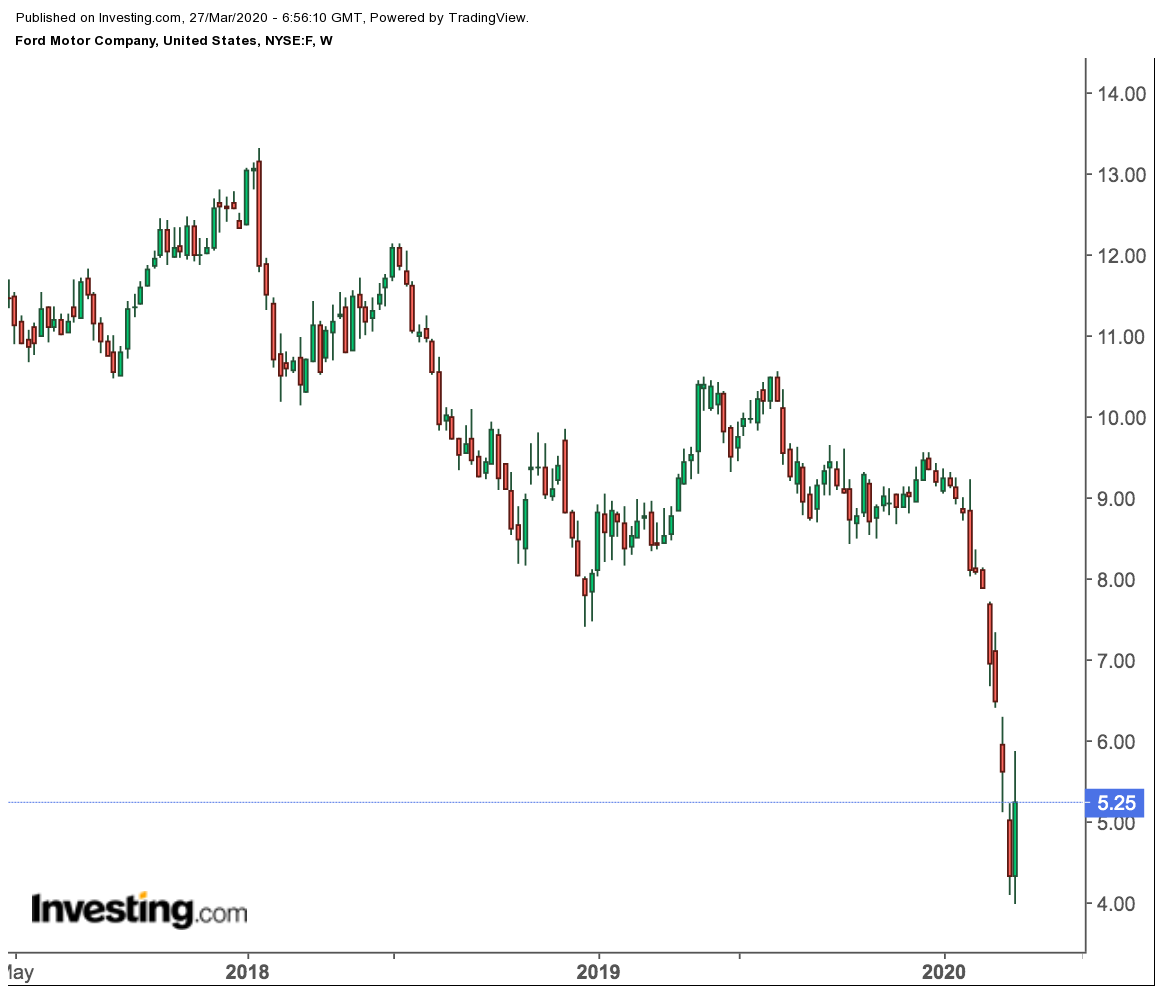Global carmakers are among the biggest industrial victims of the coronavirus pandemic. Facing plant closures and demand destruction, the global health crisis has pushed some of the weakest players into a dire financial situation. Ford Motor Co. (NYSE:F), the world’s second-largest producer, is one of them.
Even before going into the latest crisis, Ford was battling some serious challenges. After many years of rising sales, helped by the robust global economy and consumer demand, the car-maker was facing powerful headwinds as demand for sedan cars slowed. Last year, its net income fell by more than half.
The company decided to exit the smaller car markets to focus on SUVs and trucks in the U.S., while accelerating its efforts to quickly enter the electric and self-driving vehicle markets. Last year, it announced it will spend $900 million to build electric and driverless cars at its Flat Rock plant south of Detroit.
Indeed, Ford was executing a $11-billion restructuring plan, spread over five years, that includes cutting thousands of jobs, rejuvenating its line of SUVs and pickups and abandoning slow-selling sedans.
But the coronavarius crisis has thrown the viability of this plan into doubt, forcing S&P Global Ratings to downgrade Ford’s credit rating to junk this week. The move follows that of Moody’s Investors Service, which cut its rating for the second time in six months earlier on Wednesday.
Credit downgrades accelerated a plunge in Ford stock, which has lost 41% of its value this year, falling to the lowest level since 2009. It closed yesterday at $5.25, down 2.6% on the day.
Dividend Suspended
With Ford’s factories shut around the globe -- including all its North American plants -- and no decision as to when they’ll resume production, the company is under immense financial pressure, according to S&P.
“The stress of having all of a company’s plants shut down differs from that of a conventional recessionary downturn,” the credit rater said, noting that the shutdowns mean Ford isn’t generating the revenue it needs to cover its costs. “The rate of cash burn, even for a few months, could be faster than that which transpires during a typical recession.”
While trying to avert the financial crisis and preserve cash, the company last week suspended its dividend that the management earlier vowed to maintain. It took this step to prioritize financial flexibility and investments in a series of new-product launches this year, according to a statement.
“While we obviously didn’t foresee the coronavirus pandemic, we have maintained a strong balance sheet and ample liquidity so that we could weather economic uncertainty and continue to invest in our future,” Chief Executive Officer Jim Hackett said in the statement. “I’m confident in the actions we are taking to navigate the current uncertainty while continuing to build toward the future.”
Analysts, on the other hand, remain dividend whether Ford will be able to survive in this difficult time without the government bailout which seems imminent for the companies struggling after the shutting down of the economy over the COVID-19 outbreak.
Adam Jonas, Morgan Stanley’s head of global autos and shared mobility research, told CNBC on Tuesday that though Ford will survive the financial uncertainty caused by the coronavirus, its stock may not have bottomed just yet.
Jonas told the network the automaker has had its execution issues. But he pointed to the company’s $30 billion in liquidity in its industrial operations as well as a strong treasury and financial team born of the 2008 financial crisis, in which the company did not receive a bailout.
Bottom Line
The current crisis has further delayed the outcome of Ford’s turnaround plan that many analysts were expecting to see this year. From here, the company’s survival is very much dependent on the government lifeline that it plans to extend to automakers and the company’s ability to take advantage of a possible demand revival, spurred by low interest rates and a drastic cut in the fuel cost.
